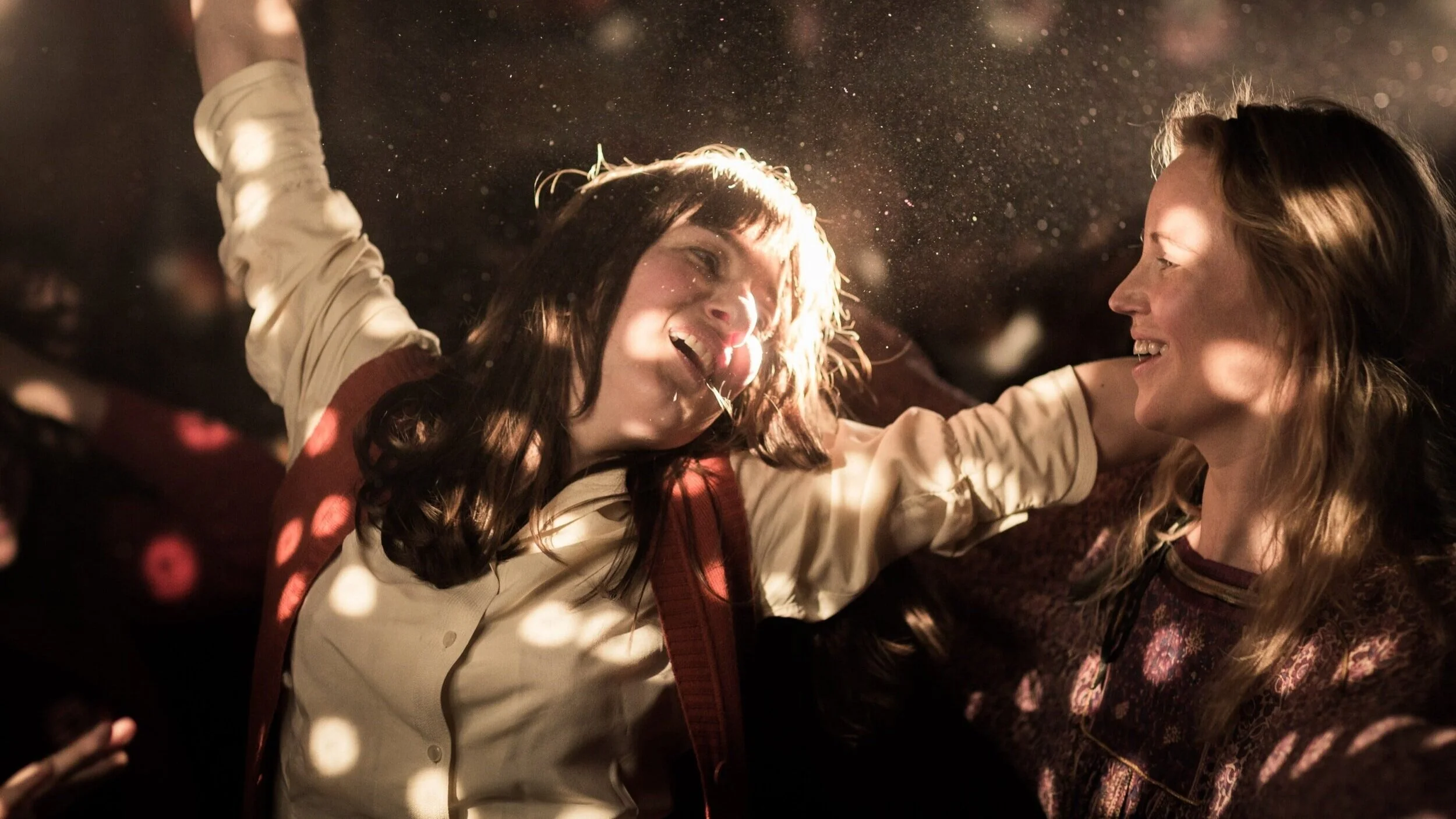The Divine Order
A period piece about women's rights becoming a bone of contention in a Swiss village.
Marie Leuenberger and Sofia Helin
This film from Petra Volpe, writer and director, is set in a Swiss village in 1970. Her purpose is to tell a tale which will have popular appeal and which centres on a married woman, Nora (Marie Leuenberger), the mother of two young sons and the wife of Hans (Max Simonischek) who works in a local factory. Not without engaging touches of humour, the film quickly reminds us that this is a world away from the city centres in which the spirit of the age is revolutionising the role of women.
Nora is not dissatisfied with her life but traditional attitudes continue to rule in her part of the world - indeed, the film’s title relates to the view that women’s place is in the home (“Women in politics are against the divine order”). When Nora decides that she would like to bring in some extra income by taking a part-time job, Hans forbids it and Swiss law at that time was such that a woman could only work if she had her husband’s permission. Before long, Nora, previously unconcerned with political matters, is becoming involved with an association seeking liberation for women including the right to vote. In this she is encouraged by the elderly Vroni (Sibylle Bruner, well cast), but the odds seem to be against them for an opposition group headed by Hans’s boss Charlotte Wipf (Therese Affolter) is earning widespread approval. Meanwhile, the film illustrates the lot of women through what we see of subsidiary characters such as Nora’s sister-in-law (Rachel Braunschweig), the latter’s rebellious daughter (Ella Rumpf) and a newcomer from Italy, Graziella (Marta Zoffoli).
Ably made and well photographed, the film’s first half is good popular fare and it all gains enormously from the natural, relaxed presence of its lead actress, Marie Leuenberger. The film feels on less secure ground however when, on a visit to Zurich, Nora discover that women’s liberation has a strongly sexual side (a workshop on this theme is shown and it carries the risk of coming across as too much like a parody). Nevertheless, the importance of the film’s concerns is undeniable and is underlined by the fact that Nora’s name echoes that of one of Ibsen’s heroines who almost a century earlier had attempted to escape out of a doll’s house.
What really disappoints here is the sense that the longer the film goes on the more it falls into cliché and sentimentality. A death is incorporated to milk tears and the subsequent funeral becomes the opportunity for a contrived scene of reconciliation. At the film’s close the Swiss Referendum on giving women the vote provides an upbeat ending and we are told that, although it was close, even the local vote was in favour. But everything we have seen in The Divine Order makes that result surprising and underlines the fact that Volpe’s film eventually pushes its case through with too many broad brushstrokes. Feminists may not complain at this, but by the end male viewers, however sympathetic to the cause of women’s liberation, may well feel that the film needed more subtlety and a more balanced portrayal. On such an issue it’s fine to be partisan, but wielding what sometimes feels like a blunderbuss is counter-productive.
MANSEL STIMPSON
Cast: Marie Leuenberger, Max Simonischek, Rachel Braunschweig, Sibylle Brunner, Marta Zoffoli, Bettina Stucky, Peter Freiburghaus, Therese Affolter, Ella Rumpf, Nicholas Ofczarek, Sofia Helin.
Dir Petra Volpe, Pro Reto Schaerli and Lukas Hobi, Screenplay Petra Volpe, Ph Judith Kaufmann, Pro Des Su Erdt, Ed Hansjörg Weissbrich, Music Annette Focks, Costumes Linda Harper.
Zodiac Pictures/Schweizer Radio und Fernsehen/SRG SSR/Teleclub-Cinefile.
96 mins. Switzerland. 2017. Rel: 8 March 2018. Cert. 12A.


